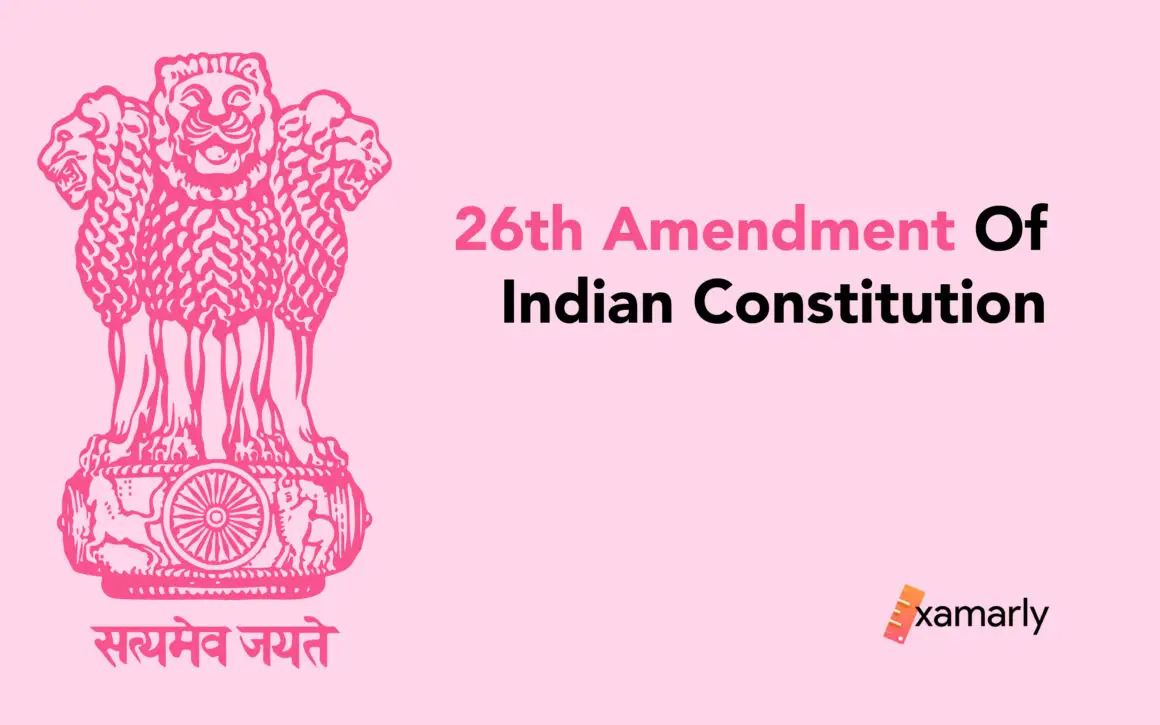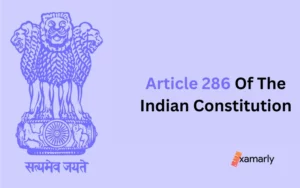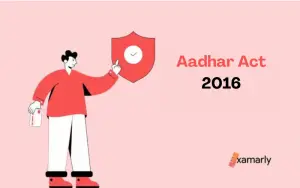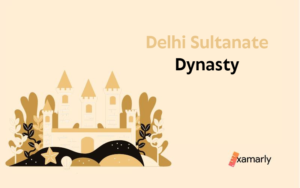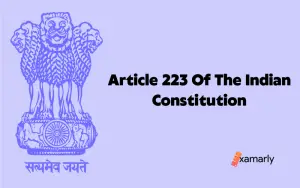What does the 26th Amendment of Indian Constitution pertain to? When was it passed? What was the aim of this constitutional amendment? What were the relevant provisions made? Were there any crucial current debates or current functions associated with this amendment? Let us find out the answer to each of these questions in this article.
The 26th amendment of Indian Constitution was passed on 28 December 1971. The main aim was to abolish the practice of privy purse and thereby make the political system more democratic. Thus, Article 291 and Article 362 which restricted equality and social justice of the democratic system were removed from the Constitution. Additionally, article 366 was amended and Article 33A inserted.
Let us look at these in detail.
What Is Privy Purse?
The concept of the privy purse comes from the time of independence. At the time of independence, more than a third of the subcontinent were princely kingdoms. The British passed the Indian Independence Act of 1947 and freed areas from under the direct control of the British. Further, princely rulers were given the choice of deciding whether they wished to join India or Pakistan.
To ensure that the Indian subcontinent remained stable, Sardar Vallabhai Patel made the princely states sign the Instrument of Accession. Thus, these princely states became a part of India. In return, the princely states were granted a stipulated yearly allowance or financial help. So, a privy purse was a sum of money given to the ruling families of erstwhile princely states as part of their agreements to unite their kingdoms with India. The purpose of the privy purse was to ensure that rulers were supported for their royal duties.
26th Amendment Of Indian Constitution
The 26th Amendment of the Indian Constitution mostly dealt with the removal of the privy purse. The privy purse was a relic of the British era and was not compatible with an egalitarian social order. The concept of financial assistance and special privileges for rulers did not make sense in a democratic country that proclaimed equality by law.
Thus, under the 26th Amendment of Indian Constitution which was passed on 28th December 1971:
- Article 366 was amended
- Article 363A was inserted
- Articles 291 and 362 were removed
Objects And Reasons
The primary goal of the Twenty-Sixth Amendment was to put an end to the practice of the privy purse. The amendment of Article 366, insertion of article 363A, and omission of Articles 291 and 362 resulted from this. Basically, the objects and reasons are two-fold:
- Removal – Removal of the privileges of rulers belonging to erstwhile princely governments. The reason for striking off this privy purpose was an act of removing any personal privileges that few enjoyed under the face of the law that in actuality stood for equality for all. Basically, the concept of the privy purse was proclaimed as something unsuitable for the democratic and egalitarian social order.
- Replacement – Replacement of the earlier articles by either amending or inserting new clauses or statements. In order to completely accomplish the task of removing the privy purse, it is necessary to amend the relevant Constitutional provisions and add a new article that expressly terminates the recognition that has already been given to such rulers by eliminating all rights, obligations, and liabilities related to privy purses.
Important Provisions
The 26th amendment of the Indian constitution dealt with the concept of rulership and the ‘privy purse’, which were privileges granted for private and social purposes. The amendments, omissions, and insertions of various articles as important provisions of the Twenty-Sixth Amendment are mentioned below:
Omission Of Articles 291 And 362
The 26th Amendment of Indian Constitution of 1971 removed Articles 291 and 362. The former dealt with the details of privy purse sums and the latter guaranteed specific rights and privileges to rulers of princely states. The ‘privy purse’ was guaranteed by Articles 291 and 362 in the Indian constitution, which ensured that princes would receive tax-free privy purses, equivalent to one-fourth of the money they earned earlier. Thus, with the omission of Articles 291 and 362, the privy purse which was paid to former princely states was removed.
Added Article 363A
The 26th amendment to the Indian constitution adds Article 363A to the Constitution which stripped any princely state ruler of their title and privileges. In essence, the article clarified that:
- A prince, chief, or another individual that the President had recognized as the ruler or the successor to the ruler of an Indian State stops to be recognized in such capacities.
- The privy purse (along with other rights and privileges it gave) has been abolished and as a result, the ruler, successor of a ruler, or any other person will not be paid any money as the privy purse.
Amendment Of Article 366
Amendment to Article 366 was concerned with the substitution for Clause (22) in Article 366 with a more clear definition of “ruler”. Under this amendment, “ruler” refers to any prince, chief, or other person acknowledged by the President as the Ruler of an Indian State prior to the initiation of the Indian Constitution, as well as any person acknowledged by the President as the ruler’s successor at that time.
Shree Padmanabhaswamy Temple
There was a disagreement about whether the Kerala government should inherit the temple and assets of Shree Padmanabhaswamy Temple in Trivandrum. The Ruler of Travancore was “vested in trust” with the responsibility of overseeing the Padmanabhaswamy Temple, according to the Instrument of Accession.
The temple was run by the former royals even after Kerala was established as a state in 1956. The 26th constitutional amendment abolished privy purses for the erstwhile royals.
The issue was whether the State would take control of the temple and its holdings as a result of the 26th Constitutional Amendment. The Kerala High Court declared in 2011 that the family cannot use its shebait privileges anymore. Shebait is a Hindu deity’s servant and the temple’s administrator. Now, that decision has been reversed. The Supreme Court has ruled that the Shree Padmanabhaswammy Temple is public property. As a result, the temple’s income and offerings shall be used to improve its facilities for worshippers. The temple’s advisory committee may use these funds for charitable purposes, but it must invest them wisely. Moreover, it must ensure that the temple’s properties are safe.
As a result, the Travancore Royal Family and the Shree Padmanabhaswami Temple have a special relationship. The Constitution recognizes this relationship. The Travancore Royal Family and the Travancore Temple have acted as the deity’s earthly custodians and representatives for over a thousand years. This relationship is independent of any royal titles that may have been conferred on them by the British.
Conclusion
The privy purse was originally introduced during the Independence Era and was a practice that granted special status to the ruling class. It was in direct opposition to the principle of equality that underlies the Indian Constitution. It also added a significant economic burden to the newly independent nation. Indira Gandhi fought for its abolition, and the 26th Amendment of Indian Constitution of India formally abolished the privy purse.
FAQs
What Are Privy Purses?
Privy purses are payments made by the government to the ruling families of erstwhile princely states. The Indian government signed many treaties with the princely states. In almost all cases, the Indian government agreed to pay a fixed amount of money every year to these rulers. These payments were guaranteed by the Indian constitution and came out of the Consolidated Fund of India. The money was supposed to cover expenses incurred by the rulers of the princely states. These payments began in 1947 and continued for as long as the ruling family continued to control the power.
What Are The Reasons Behind The ‘Privy Purse’?
Privy purses were a form of heredity grant. Traditionally, rulers were awarded them based on the extent of their state, its revenue, and its potential for expansion. While the British Government provided independence to the areas under its rule, it left the decision up to the princely states. Subsequently, Sardar Vallabhbhai Patel ensured that the princely states somehow became part of the Indian Union. This meant that the Government of India would provide these states with a ‘privy purse’ – a certain amount of money paid annually to the rulers of those states. As princely states began merging, the practice of privy purses was criticized and protested. Then-prime minister Indira Gandhi declared that the practice was anti-equality and anti-economic justice, and called for its abolition.


